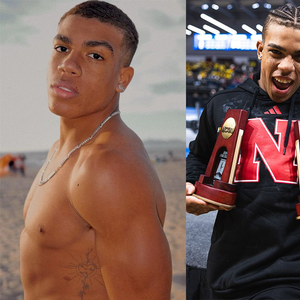Hillary Rodham
Clinton's campaign is arguing that she has regained enough
momentum going into two crucial primaries to get a shot at
the White House, but the all-important party
superdelegates were falling into line behind
front-running rival Barack Obama.
Despite the
momentum building behind Clinton after her win in
Pennsylvania and polls showing voters drifting in her
direction, it still appeared mathematically impossible
for her to overcome Obama's delegate lead for the
party nomination.
In the past two
months, Obama has whittled Clinton's superdelegate lead
by half, a key gain for the Illinois senator because neither
candidate can win the 2,025 delegates needed for
nomination in the remaining nine state and territorial
contests.
Clinton has a
20-superdelegate lead, 268 to 248, but Obama holds the
overall advantage in delegates, including committed
superdelegates, 1,736.5 to 1,602.5.
That means the
superdelegates, the nearly 800 party officials and office
holders free to back either candidate regardless of state
votes, will decide the nominee. So far 516 have chosen
sides.
While it still
may be a long shot, Clinton advisers believe she is in a
stronger position to argue that uncommitted superdelegates
should give her candidacy another look even though she
is trailing in delegates, states won and the popular
vote.
She appeared to
be gaining strength among voters, especially the white
working class, some of whose members have reacted
negatively to Obama's association with Reverend
Jeremiah Wright -- the Illinois senator's former
pastor who called from the pulpit for God to damn
America for its treatment of African-Americans.
Clinton
strategists also say that Obama's message of hope and change
has worn thin as the slumping economy has diverted
voters' attention. Clinton's emphasis on policy
proposals, such as her plan to ease home foreclosures
and her backing of a summer gas tax holiday opposed by
Obama, is winning over voters, particularly the
working-class backbone of the party, they say.
''There is a
settled view among Democrats and in the general electorate
that Sen. Clinton is the better candidate to have knowledge
and leadership to turn the economy around,'' Clinton
strategist Geoff Garin said.
A poll released
Thursday by the Pew Research Center for the People &
the Press showed Clinton's lead over Obama nationally among
whites who did not attend college had increased from
10 points in March to 40 points at the end of April.
That voting bloc
played heavily in Clinton's substantial win last week in
Pennsylvania and was likely to be just as critical Tuesday,
when voters cast ballots in Indiana, where surveys
indicate the outcome is a toss-up.
A second poll
released Thursday carried more potential bad news for Obama
in North Carolina, which votes the same day as Indiana. The
Mason-Dixon Polling and Research survey for two
television stations in the state showed Obama's
double-digit lead had slipped to just seven points, 49% to
42%.
Nationwide, the
Pew poll showed, Democratic voters now are about evenly
divided, with Obama holding a statistically insignificant
47% to 45% margin. In late March he was up 10 points,
49% to 39%.
The latest Gallup
national tracking survey had Clinton leading 49% to
45%, after a week of showing Clinton and Obama
as nearly even. Obama held a 10-percentage-point
margin going into Pennsylvania.
On Friday,
Clinton picked up the endorsement of Indiana's largest
newspaper, which cited her experience. TheIndianapolis Star praised both candidates but
stated: ''Clinton is the better choice, based on her
experience and grasp of major issues.''
The prolonged and
divisive campaign was of particular concern for
Democrats concerned about damage being done to the party's
chances in the fall against the presumptive
Republican nominee, Sen. John McCain.
McCain on
Thursday went to Iowa in the heart of America's farm
belt, where subsidies for corn and ethanol fuel are
often quite popular, to denounce agricultural
subsidies.
Congress is
struggling to finish a nearly $300 billion bill that McCain
says is bloated with subsidies for wealthy farmers. His
long-held position against subsidies has cost him in
Iowa, the state that traditionally begins the
presidential nominating process and is a potential
swing state in the fall.
Despite his ties
to President George W. Bush, whose approval rating is
below 30%, McCain is running close to both Clinton and Obama
in hypothetical matchups.
Those fears led
former Democratic National Committee chairman Joe Andrew
on Thursday to switch his backing to Obama, despite having
been named to the top party job by former president
Bill Clinton.
''This has got to
come to an end,'' Andrew told reporters in his hometown
of Indianapolis. He said he planned to call all the other
superdelegates he knows and encourage them to back
Obama.
Asked for a
response to Andrew's decision, Clinton spokesman Phil Singer
said, ''We support that Democratic process and think that
every American should be able to weigh in and support
the candidate of his or her own choosing.''
Clinton adviser
Harold Ickes also sent a memo to superdelegates Thursday
arguing that the polls prove she is the strongest candidate
to beat McCain. Among the polls they cited was an
Associated Press-Ipsos survey out this week
that showed Clinton leading McCain by nine percentage
points, while Obama is virtually tied with the likely
Republican nominee.
This week, Obama
picked up nine superdelegates, plus three add-on
delegates named by the Illinois Democratic Party. Clinton
gained four new superdelegates, while also picking up
four add-on delegates from her home state of New York.
In the
southwestern state of New Mexico, a group of Clinton
supporters that includes four New Mexico
superdelegates, has accused the state Democratic Party
of breaking national and state party rules when it
nominated a 12th superdelegate.
The woman chosen
as the 12th superdelegate has said she is undecided, but
the Clinton group believes she is an Obama supporter. The
Clinton supporters nominated their own candidate, who
they think leans toward Clinton. (AP)


















































































